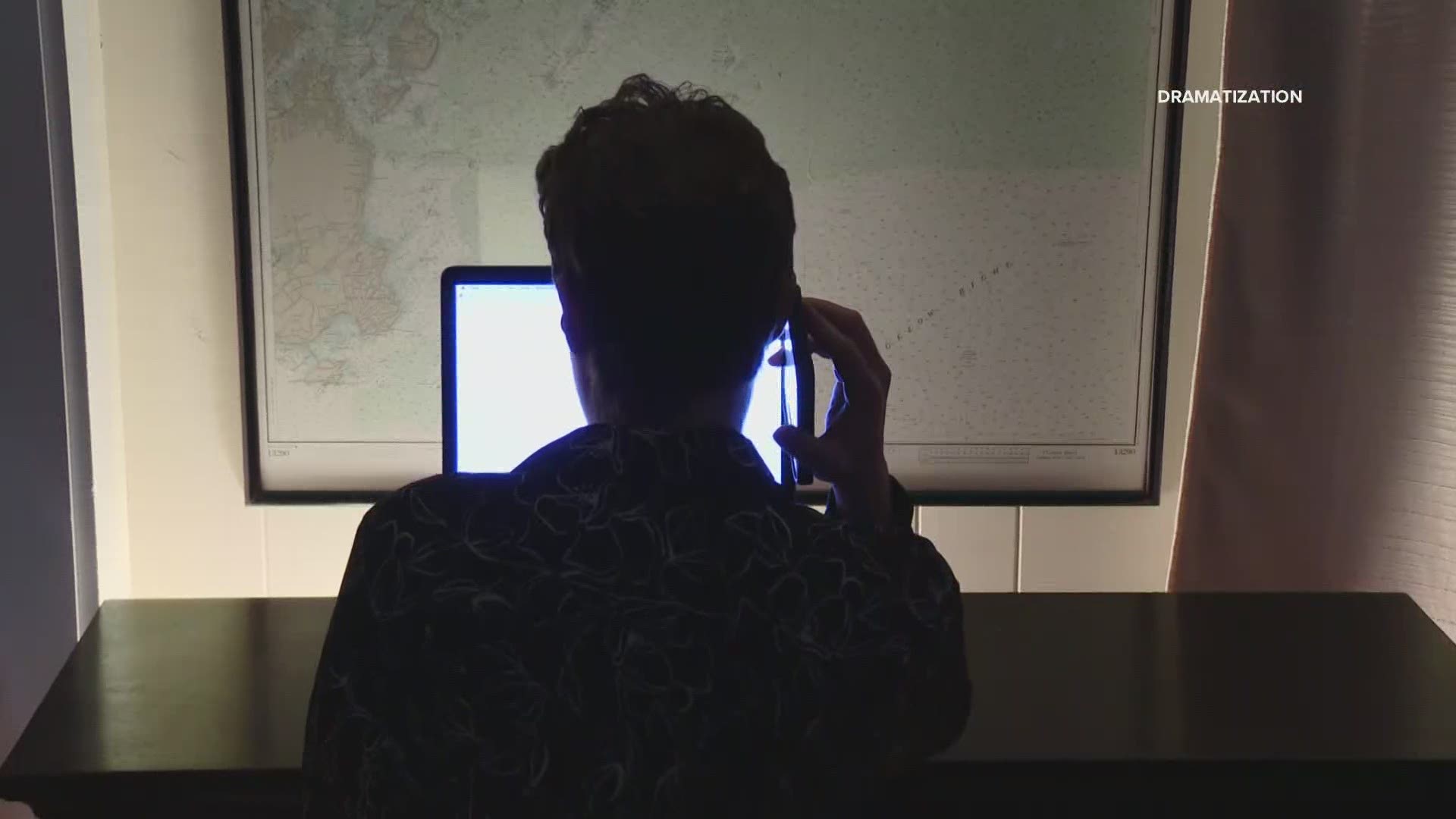MAINE, Maine — For the last four months, Bowdoin College student Warsameh Bulhan has taken on more than figuring out how to study during a pandemic.
"My main goal was to try and help out in some form or way," Bulhan said.
The neuroscience major is playing a critical role in stopping the spread of COVID-19. Bulhan is one of more than 100 contact tracers in Maine.
"Contact tracing is crucial in our fight," he said.
It's a fight that begins when we leave our phone numbers at restaurants. It can be complicated and tough to give people the startling news that they may have been exposed to someone who has COVID-19.
"I would say it is very difficult just because for a lot of these people, it's one of the most stressful moments of their lives," Bulhan said.
This is what someone can expect to hear on the other end of the phone:
"Hi my name is Warsameh Bulhan. I work for the Maine CDC. And the we go into describing the individual's situation," Bulhan explained.
He then provides people with guidance and support. He also asks them to quarantine for 14 days and to get tested.
"Making sure we are just doing our best to keep everyone calm, and then giving them the information they need. If they start seeing symptoms, what they need to do, where they can get testing," Bulhan said.
It's a call Amy Woodman knows all too well.
"It was a little scary," Woodman said.
The Sanford resident tested positive for COVID-19 in April.
"Those personal contacts, which is my family, my sister-in-laws, my father-in-law, my stepson who lives with us. They wanted phone numbers and contact information for each and every one of them so they could contact them," she said.
The Maine CDC said close contacts are people who were within six feet of a COVID-19 positive person for a total of 15 minutes or more within a 24-hour period. It also includes the 48-hour period before the positive person became symptomatic.
Bulhan and the Maine CDC both stress that if you get that phone call, pick up and answer all their questions.
"This is all based on trust. We can't do our job without people. We can't do our job without communication, without people picking up," Bulhan said.
RELATED: Gov. Mills: Face coverings must now be worn in public settings regardless of physical distance
"The information that may be relayed to you by the person from our agency that's calling, is information that can keep you and your family safe," Maine CDC Director Dr. Nirav Shah added.
Shah said 'Maine CDC' will come up on your caller ID. Contact tracers will ask a series of questions including:
- Your date of birth
- What county you live in
- Your contact information, including phone number, mailing address, and email address
- If you have symptoms of COVID-19
They will never ask for your social security number or immigration status.
"Contact tracing is tracing the virus not people," Bulhan said.
Dr. James Jarvis of Northern Light Health said they are working with the Maine CDC to increase the number of contact tracers.
"They've also asked in the case of hospitals like ones in Northern Light Health, that we do our own independent contact tracing when we have an issue with one of our employees, staff, visitors, or a parent," Jarvis said.
Contact tracers have experienced a variety of reactions from those they are trying to reach. One contact tracer we spoke with who did not want to go on camera said she was verbally abused and threatened. Shah said that reaction is unusual.
"Overall statewide, the buy-in for what we are trying to accomplish by this has been good," Shah said.
Bulhan said if people don't answer, he keeps calling back.
"That is our job and our duty in the Maine CDC is to reach out and try to reach these individuals," he said.
As Bulhan helps Maine, he is also building up his resume for what he hopes will be a career in public health and medicine.
"Learning more about that and helping people is a huge passion of mine and I know I'm definitely going down that path," Bulhan said.
As cases of the coronavirus increase in Maine, Shah said it could get difficult for contact tracers to keep up with the high numbers. The Maine CDC is planning on adding 20 more contact tracers to the workforce.
To augment what the contact tracers are doing, the Maine CDC is also using a web-based tool called Sara Alert. Anyone who has been told they've potentially been exposed to the virus can register with Sara Alert and get an automated daily message asking if they're experiencing symptoms. People can respond by text, email, on the web, or by phone. The information is then made available to the Maine CDC in real time.

